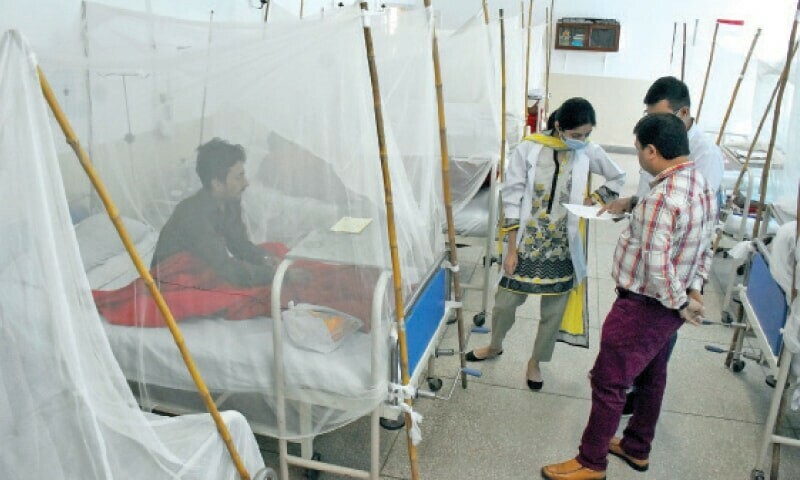- Web Desk
- Feb 19, 2026
Health alert issued as dengue fever takes strong foothold in Pakistan
-

- Web Desk Abobakar Khan
- Oct 05, 2023

ISLAMABAD: Over the past decade, dengue fever has established a significant presence in Pakistan, seriously impacting the health of its citizens.
The Climate Change Impact and Integration Cell (CIIC) at the Pakistan Meteorological Department has issued a dengue alert and precautionary measures report.
According to the report, dengue outbreaks occur primarily during the post-monsoon season, specifically from September 20 to December 5, provided favourable conditions exist.
These conditions include temperatures ranging from 26 to 29°C (lasting 3-5 weeks), humidity at 60%, rainfall of 27mm, with a maximum time lag of 3 weeks. Dengue activity is most prominent two hours after sunrise and two hours before sunset. Breeding ceases when temperatures drop below 16°C.
On another note, the district health officer of Islamabad presented a report on dengue-positive cases admitted to various hospitals to the Senate Standing Committee on National Health Services Regulations and Coordination. The report categorizes cases into new patients within 24 hours, rural patients, and urban patients.
In the ongoing battle against dengue, Islamabad has reported a total of 1,026 cases. Health authorities have identified 51 cases originating from districts outside Islamabad through meticulous patient confirmatory calls, showcasing the department’s dedication to delivering top-notch public health services.

In capital’s rural areas, 704 cases have been reported, emphasizing the need for targeted interventions in these regions.
128 new cases of Dengue reported in Punjab
Meanwhile, urban areas of Islamabad have reported 322 cases. The rural district has proactively responded, with 505 cases receiving direct field response through dedicated Case Response Units, achieving a remarkable 71.74% response rate.
In urban areas, out of 322 reported dengue cases, 228 received immediate field response from Case Response Units, with a notable 70.8% case response rate, demonstrating the effectiveness of these targeted interventions.

The dengue incidence trend in Islamabad reveals distinct patterns in rural and urban areas, suggesting varying epidemiological landscapes influenced by factors such as population density, environmental conditions, and local vector control efforts.
Administrative measures led by area magistrates, assistant commissioners, entomologists, and sanitary inspectors aim to combat the proliferation of Aedes mosquitoes, the carriers of the dengue virus.
These measures include sealing and arrests to identify and isolate breeding grounds, legal actions if necessary, and collaboration among authorities to protect public health and promote community participation in dengue prevention efforts.




